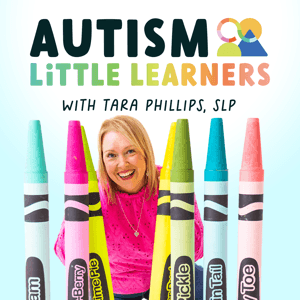Join the FREE Rubric Reset Workshop, live on November 12:
Grab your free ticket here >> REGISTER NOW
In this episode, Nicole Casey discusses the challenges of writing effective goals for autistic students, emphasizing the limitations of traditional goal writing systems. She introduces rubrics as a solution to create individualized, meaningful, and measurable goals that reflect the child's needs. The conversation highlights the importance of moving away from compliance-based goals and focusing on authentic progress. Nicole also invites listeners to join her free Rubric Reset Workshop, where they can learn to implement this new approach in their practice.
Takeaways:
- Goal writing can feel overwhelming and frustrating.
- It's common to feel like goal writing is a personal struggle.
- Traditional goal writing often doesn't reflect the child's needs.
- The education system's limitations impact goal writing.
- Compliance-based goals can hinder authentic progress.
- Rubrics can streamline the goal writing process.
- Individualization is key to effective goal setting.
- Progress should be measured in a meaningful way.
- Rubrics allow for capturing nuanced communication skills.
- Advocacy is essential for changing the goal writing system.
Chapters
00:00 The Struggles of Goal Writing 02:47 Understanding the System's Flaws 06:05 The Compliance Trap in Goal Writing 08:46 Introducing Rubrics as a Solution 12:03 The Importance of Individualization 14:59 Measuring Progress Beyond Compliance 17:50 The Rubric Framework Explained 21:03 Capturing Authentic Progress 23:52 Implementing Rubrics in Practice 26:47 Preparing for the Rubric Reset Workshop
goal writing, autistic students, rubrics, compliance, individualized education, therapy, progress measurement, child-led therapy, IEP, education system



































